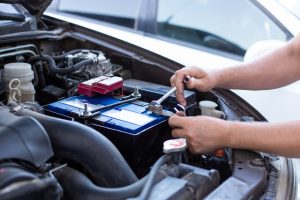
- The Savvy Promise
At Savvy, our mission is to empower you to make informed financial choices. While we maintain stringent editorial standards, this article may include mentions of products offered by our partners. Here’s how we generate income.
In this article
A car warranty is essentially a guarantee from the manufacturer or seller that they will cover certain repairs or defects within a specified period. While this can provide peace of mind and protection against unexpected expenses, not all warranties are created equal. In this blog, we'll delve into the intricacies of car warranties in Australia, examining what they entail, how to evaluate their worth and factors to consider when deciding if a warranty is truly worth its salt.
Understanding the different types of car warranties
- Manufacturer’s warranty: new cars typically come with a manufacturer's warranty that covers repairs for a specific period or mileage (usually 3–7 years or 50,000–100,000 km). This is your first line of defence against repair costs during the initial ownership period.
- Extended warranty: this is an optional warranty offered by the dealership or a third-party provider. It extends the coverage beyond the manufacturer's warranty, potentially covering repairs for additional years or mileage.
- Used car warranty: this is another optional warranty, often offered by the dealership or a third-party provider specifically for used cars. These warranties can have varying levels of coverage, ranging from basic protection for specific components to more comprehensive coverage similar to extended warranties.
The ins and outs of new car warranties
A new car or manufacturer’s warranty comes as standard with every new car. However, even though it’s included, it’s important to be aware of what is covered before you hit the road.
- Check warranty details: check the terms and conditions to understand what is covered and avoid surprises.
- Evaluate warranty benefits: understand any benefits your warranty may provide. For example, genuine parts and qualified technicians may be included at no extra cost.
- Review coverage: a car warranty covers a lot, but not everything. It’s useful to make a list of what matters to you in a car and verify if it's covered under warranty.
- Note service limitations: know the warranty period and mileage limit. If you think you might exceed these, you may want to consider purchasing an extended warranty.
Factors to consider before buying an extended or used car warranty
Before you dive into any agreement, it's crucial to assess whether the warranty is truly worth it. Here are some factors to consider:
Cost vs. potential benefits:
Extended warranties and used car warranties can be expensive. Weigh the cost against the potential repair savings and your risk tolerance for unexpected repairs. Consider the average repair costs for your specific car model and age to get a better sense of the potential financial benefit of a warranty.
Coverage details:
Carefully review the specific terms and conditions of the warranty. Understand what's covered (specific components, repairs, labour), the duration of coverage, excess, exclusions (wear and tear, specific parts, pre-existing conditions) and claim procedures. Don't rely solely on verbal communication from the seller. Get everything in writing to avoid any misunderstandings later.
The car’s age and condition:
Consider the age and overall condition of the car. If it's a reliable model with a good service history, a warranty might be less necessary. Conversely, an older car with potential risks for breakdowns might benefit from some level of warranty coverage. Getting a pre-purchase inspection from a qualified mechanic can provide valuable insights into the car's condition and potential repair needs, helping you decide if a warranty is worthwhile.
Necessity:
Ask yourself whether you truly need an extended warranty. Can you comfortably manage without it? While the right warranty can be invaluable in safeguarding your vehicle and finances, it's essential to weigh the cost against the potential benefits and determine if it aligns with your needs and priorities.
Alternatives:
Instead of a warranty, consider setting aside money in a dedicated car repair fund. This can be a good option if the warranty cost seems excessive or if you prefer to manage repair costs yourself.
What can void your car warranty?
Failing to adhere to the manufacturer's recommended maintenance schedule is one of the most common ways to void your warranty. This includes regular oil changes, filter replacements and other routine checks at specific intervals.
Other actions that can potentially void your warranty include:
- Using non-approved parts or fluids for repairs and maintenance.
- Making significant modifications to your car, especially those affecting the engine, suspension, or other core components.
- Using your car for activities not intended by the manufacturer, such as racing or off-roading beyond its capabilities.
- Neglecting your car by ignoring warning lights, failing to address minor issues or driving with known problems.
- Attempting complex repairs yourself beyond routine maintenance, especially if you lack the necessary expertise or qualifications. While you do not need to get your car serviced at the dealership, any mechanic you use must be qualified and use genuine parts.
Beyond warranties: maintaining your car’s value
While warranties can offer some protection, there are other crucial steps you can take to maintain your car's value and minimise repair costs:
- Regular maintenance: following the manufacturer's recommended maintenance schedule and getting your car regularly serviced is essential for preventing breakdowns and extending the lifespan of your car.
- Quality parts and fluids: using high-quality, approved parts and fluids during maintenance and repairs can help ensure your car runs smoothly and avoid issues that could void your warranty.
- Driving habits: safe and sensible driving – such as avoiding aggressive driving, not overloading your car and adhering to speed limits – can significantly reduce wear and tear, leading to fewer repairs.
- Record-keeping: maintain detailed records of all your car's maintenance history, including receipts and service logs. This documentation can be beneficial if you need to make warranty claims or sell your car in the future.
Deciding whether a car warranty is worth its salt ultimately lies with you. Don't feel pressured to purchase on the spot. Take your time, research your options thoroughly and make an informed decision based on your specific circumstances.
If you're looking to buy a new or used car, Savvy's car loan comparison service can help you find a financing option to suit. Using our personalised service, you can compare rates and terms from multiple lenders and secure a competitive deal for your vehicle purchase. Don't settle for less – let Savvy help you drive away with confidence. Get started today.
Did you find this page helpful?
Author
Adrian EdlingtonReviewer
Bill TsouvalasPublished on June 15th, 2020
Last updated on April 2nd, 2024
Fact checked
This guide provides general information and does not consider your individual needs, finances or objectives. We do not make any recommendation or suggestion about which product is best for you based on your specific situation and we do not compare all companies in the market, or all products offered by all companies. It’s always important to consider whether professional financial, legal or taxation advice is appropriate for you before choosing or purchasing a financial product.
The content on our website is produced by experts in the field of finance and reviewed as part of our editorial guidelines. We endeavour to keep all information across our site updated with accurate information.
Approval for car loans is always subject to our lender’s terms, conditions and qualification criteria. Lenders will undertake a credit check in line with responsible lending obligations to help determine whether you’re in a position to take on the loan you’re applying for.
The interest rate, comparison rate, fees and monthly repayments will depend on factors specific to your profile, such as your financial situation, as well others, such as the loan’s size and your chosen repayment term. Costs such as broker fees, redraw fees or early repayment fees, and cost savings such as fee waivers, aren’t included in the comparison rate but may influence the cost of the loan. Different terms, fees or other loan amounts may result in a different comparison rate.










